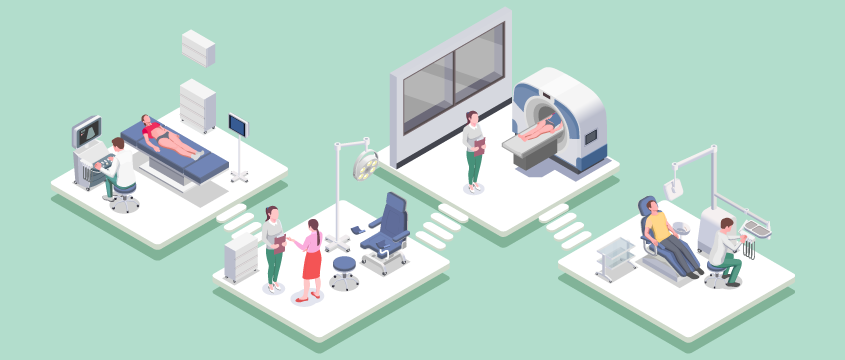
Healthcare IT Benefits – Patient Care
The fact that technology is rapidly transforming the healthcare sector is not news. It is not the more glamorous advances, like the use of robotics in operations, that are making giant leaps but the more mundane shifts in Healthcare IT that are actually driving the transformation of this ecosystem.
Health informatics – a specialization that combines communications, information technology, and health care to improve patient care – is at the forefront of the current technological shift in medicine.
Here are the 4 ways it’s already transforming health care for patients.
- Knowledge Sharing
There’s a reason the field of medicine is called a “practice,” – it’s because doctors and healthcare practitioners are constantly learning as well as honing their skills. Healthcare IT ensures that the knowledge about patients, diseases, therapies, medicines, and individual cases can be easily shared. As this knowledge and access to information shared in multiple instances is made available for the entire medical fraternity – everybody in the value chain – from hospital administrators and physicians to pharmacists benefit. And, in turn, the patients who are at the receiving end, benefit the most.
2. Single Repository of Records
As Health care gets more specialized, most patients receive care from different specialists for different health concerns, which makes for as many records and increased need for coordination.
Pharmaceutical concerns, blood reports, nutritional needs, physical therapy, X-rays, discharge instructions — it’s an astonishingly wide spectrum of records regarding care of single patient, and unless those conversations and efforts are made in tandem with one another, problems can arise and care will suffer. Health informatics and healthcare IT ensures that electronic capturing and sharing of records helps the patients have consolidated and accessible data for quick reference.
3. Boosts Patients’ Self Care
- Access & Action: Digitalized and on Device Healthcare Technology has enabled patients to directly access their personal health records. This ensures that patients are not only duly informed but also actively involved in their own healthcare journey. Healthcare informatics systems equip patients to manage their own health better.
- Easy Records Maintenance: Patients who need to secure regular records such as Type 1 or Type 2 Diabetes patients who need to maintain an accurate daily log of their glucose and insulin levels, prefer to use electronic logs as they are easy to record, are more interactive and are fun to use.
4. Improved Outcomes
Health IT is also changing healthcare by encouraging improved outcomes. Easy access to electronic medical records result in better quality care and safer care owing to increased co-ordinations that results in better diagnoses and reduces errors. Manual efforts from Doctors and nurses in maintaining records are reduced, resulting in an enhanced efficiency for focussed patient care.
Healthcare IT is making large strides in the medical and peripheral industries, and is bound to expand further. Patients are communicating better with the doctors, keeping a track of their health and medical progress. It is indeed improving the overall quality of life.
Also Read: The Benefits of Information Technology in Healthcare Sector